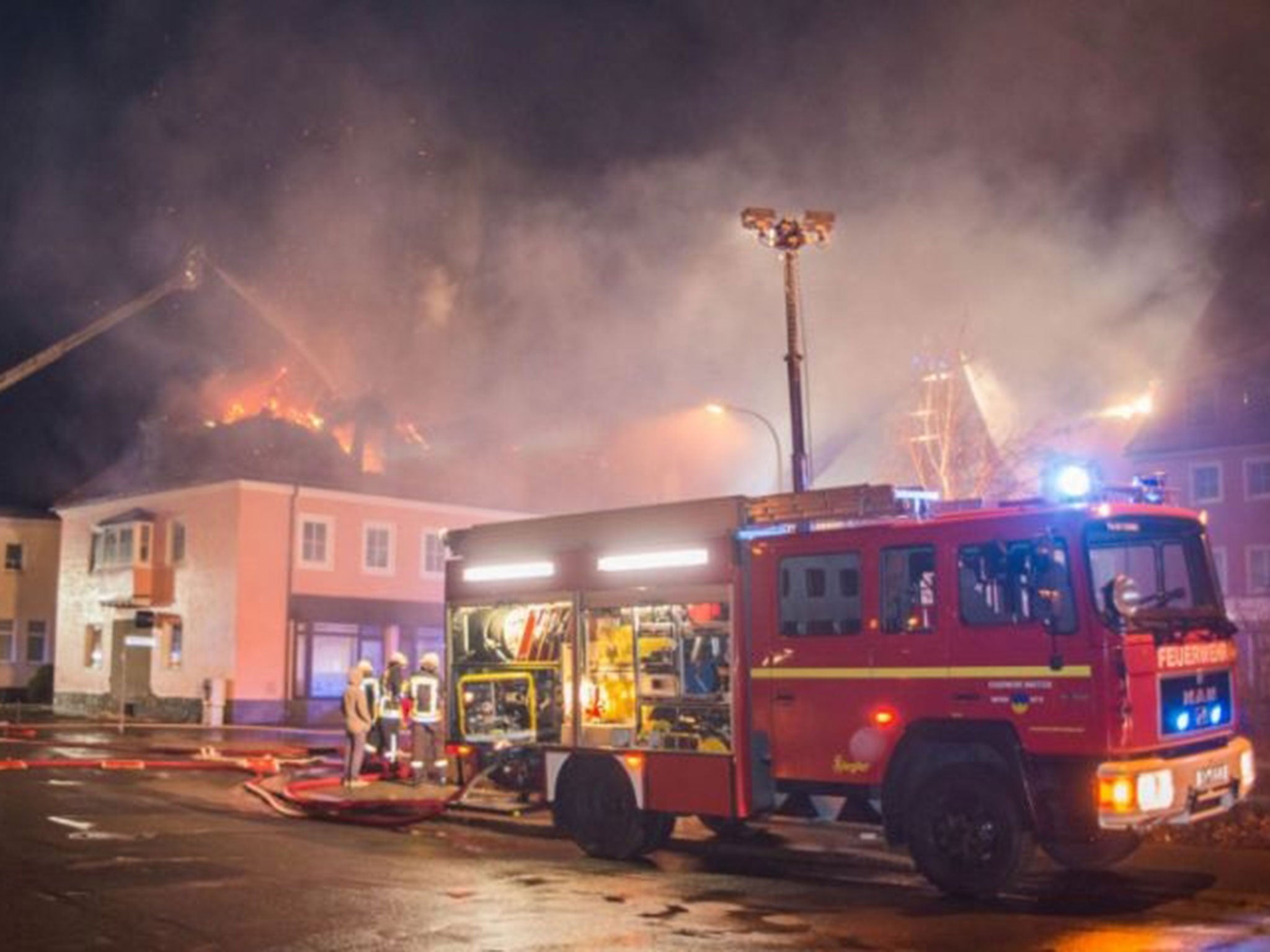Majority of Germans think Islam does not 'belong' in their country
There were 1000 attacks on refugee shelters in Germany in 2015, up by 500% from the year before

Your support helps us to tell the story
From reproductive rights to climate change to Big Tech, The Independent is on the ground when the story is developing. Whether it's investigating the financials of Elon Musk's pro-Trump PAC or producing our latest documentary, 'The A Word', which shines a light on the American women fighting for reproductive rights, we know how important it is to parse out the facts from the messaging.
At such a critical moment in US history, we need reporters on the ground. Your donation allows us to keep sending journalists to speak to both sides of the story.
The Independent is trusted by Americans across the entire political spectrum. And unlike many other quality news outlets, we choose not to lock Americans out of our reporting and analysis with paywalls. We believe quality journalism should be available to everyone, paid for by those who can afford it.
Your support makes all the difference.Chancellor Angela Merkel's public calls for tolerance and inclusivity are increasingly falling on deaf ears, a new survey into Germany's attitudes towards Islam shows.
A new poll shows almost two-thirds of Germans think Islam does not "belong" in their country. In a marked increase from a similar survey conducted six years ago in which a minority of Germans (47 per cent) thought Islam had no place in their nation, the latest poll shows the figure is now at 60 per cent.
That survey was provoked by then-President Christian Wulff's assertion that Islam was a part of the German nation, which sparked a furious backlash from social commentators.
Chancellor Angela Merkel has repeated Mr Wulff's line on several occasions, but she has been undermined by her own interior minister', who publically stated that Islam "does not belong" in Germany.
And the most recent survey of 1,000 German citizens, conducted by polling organisation Infratest dimap, reflects a lurch to the right in the German political mindset.
Nationalist and far-right parties are garnering support on Islamophobic platforms, buoyed by anti-refugee sentiment against the 1.1 million people who have arrived in Germany to seek asylum since the start of the current crisis.
There were 1,000 attacks on refugee shelters in Germany last year, a fivefold increase compared to 2014. In one incident, people in the town of Bautzen allegedly clapped and cheered as a refugee shelter burned following an arson attack.
Alternative for Germany (AfD) is an anti-immigration party, whose representatives recently refused to applaud Germany's first Muslim speaker of a state parliament.
A portion of their manifesto is titled "Islam is not party of Germany", in a direct response to Chancellor Merkel's public stance.
They write: "An orthodox form of Islam that does not respect our laws or even resists them, and makes a claim to be the only valid religion, does not correspond to our legal system and culture." The document also calls for a ban on minarets, burkhas and other "Islamic symbols of power".
Ninety-four per cent of AfD supporters responding to the survey said Islam did not belong in Germany, an opinion shared by 76% of those who support the centre-right Free Democratic Party.
The anti-Islam street movement Pegida, founded in Germany in 2014, has also brought tens of thousands of people onto the streets of Dresden and other European cities for often-violent protests.
Referring to the rise of AfD, the chairman of the Council of Muslims in Germany told the radio station NDR: "It is the first time since Hitler's Germany that there is a party which discredits and existentially threatens an entire religious community."
Just over half of Germans (52%) are concerned that the influence of Islam is growing too strong as a result of the current influx of refugees, while almost three-quarters of respondents (72%) are worried that Islamist terrorists will launch an attack on German soil.
Join our commenting forum
Join thought-provoking conversations, follow other Independent readers and see their replies
Comments